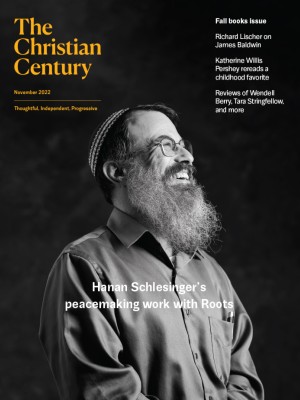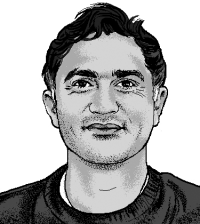After my friend’s suicide, my theology was in shock
I’ve been offering my tangled knots of questions and memories as prayers.

Several years ago in my Sunday school class, during our time to share about our week, a six-year-old raised his hand. “Why did they invent guns?” he asked.
His question silenced the room. The kids stilled themselves; their eyes widened. They all knew about the recent school shooting in another part of the country. They heard the news from somewhere, despite any attempts to shelter them from the horrors. Besides, as I’ve learned over the years, children know more about our troubles than we let ourselves acknowledge.
My thoughts were jumbled by the question. I sat there stunned, trying to gather words from the chaos—to offer something helpful, something true and good. “I don’t know why people invented guns,” I said, managing to string words into a sentence. “And I wish our society didn’t have so many of them.” The fear on their faces made me wince. I took a slow breath. “All I know is that I wish we could make them all go away.” I didn’t know what else to say, so we transitioned to a time of prayer. I invited them to say their thoughts to God, or just to think them if that seemed easier—and, especially, to ask God to hold close the family and friends who miss their loved ones.
Read our latest issue or browse back issues.
This summer a close friend of mine since childhood used a gun to kill herself. We grew up together in the same community, the same church. Her mother was our Sunday school teacher. (I learned from the best.) We went to camps together and graduated together from the same high school. When, over the years, I’d return to our hometown to spend time with my parents, I’d meet up with my friend and her husband to catch up on life. On my last visit, a couple years ago, she shared with me the excitement of a career shift—of her new job and the coworkers who’d become friends. She was exuberant.
Then, on a Friday this past summer, after a week of work, before they left the house for their evening plans, her husband heard a single gunshot from the bedroom.
I’ve tried to understand. I’ve talked to our friends—people who had spoken with her that week or texted with her that day, mere hours before her death. None of us can make sense of what happened. I was asked to share a homily at her funeral, since among our friends I’m the only pastor. I wished I was the kind of person who could get my act together in order to give my community what they needed, words as balm and hope as salve for despair. But I had to acknowledge that my mind and heart were in shambles, my head clouded with sorrow, and my theology in shock. I had nothing to say.
Our faith isn’t a shield to protect us from profound losses. Theology doesn’t explain away the pain of tragedies. God isn’t an answer to a riddle. As believers, we haven’t been given knowledge as a key to unlock the secret meaning of life’s agonies. Instead, in a devastated world, Jesus has promised us the Holy Spirit, who sighs with our sighing, groans with our groaning, and gives us the companionship of one another. We are signs of the presence of God’s love; there is divine consolation in our mutual care.
At my friend’s memorial service, her husband told us about the final moments of her life. He talked about “her last sigh, the same sigh I’d heard for 22 years.” He glanced across the crowd, looking at all of us gathered to honor our friend, his wife. “Love people as much as you can,” he said in closing. “Hold your people close.”
I’m not very good at telling my friends that I love them. But lately I’ve been trying—to let them know that I miss them, that I’m thinking about them, that I care about them, especially as we persevere through this ever-evolving pandemic and struggle against the misery of our political culture, the isolation and despair of our moment. To endure, we’ll need one another. For the renewal of ourselves and our neighbors, we’ll have to hold each other close, to find healing in our bonds of love—the restitching of our social fabric. We’ll have to hope that God will transfigure our ordinary acts of care with redemption.
I don’t know why they invented guns. I wish my friend didn’t have guns in her house. My thoughts twist and turn into endless loops of “whys” and “what ifs.” After her death, as weeks have turned into months, I’ve taken up the guidance I once gave my Sunday school kids. I’ve been offering my tangled knots of questions and memories as prayers—as a lament for the loss of her life as well as a plea for God to set our society free from the dominion of guns. For God to save us from ourselves, from a life under constant threat in our streets, our schools, our workplaces, and even our homes.
As we go on, in mourning of the last shooting and in dread of the next one, as people of faith we confess our belief in God with our love, our acts of care, our acknowledgement of our need for each other. The Christian life is a constant baptism into the depths of God’s love for this beautiful and heartbreaking world, where we enact our hope with every opportunity to pass along the peace of Christ, the fellowship of the Spirit—to give each other another reason to live.
If you are having thoughts of suicide, you can call or text 9-8-8 for the 988 Suicide & Crisis Lifeline.







